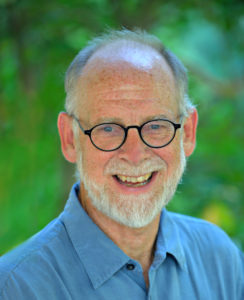Richard H. Davis
Professor of Religion and Asian Studies, Bard College
Thursday, March 29, 7:00pm
Sussman Theater, Olmsted Center, Drake University
In several classical Sanskrit works, the god Krishna is presented as a human incarnation of the Supreme Being, Vishnu. Yet he grows up in humble circumstances within a community of nomadic cowherders. They are not appraised of the divinity living among them, and only gradually come to recognize his more-than-human capacities. The narratives of his early life play with the ironic distance between the knowing reader and the unknowing cowherders. When the child Krishna performs acts that clearly display superhuman strength, the cowherders struggle to comprehend these phenomena. The drama of these accounts revolves around the difficulty of recognizing miraculous actions of a god, especially when that divinity is a baby. In this presentation I use the narratives of Krishna’s childhood among the cowherders to reflect on the use of “miracles” as a comparative category in the study of religion.
Richard H. Davis is Professor of Religion and Asian Studies Programs at Bard College, Annandale-on-Hudson, NY. Formerly he taught as assistant and associate professor at Yale University. His most recent publication is The Bhagavad Gita: A Biography (Princeton University Press, 2014). He is author of four other books: Ritual in an Oscillating Universe: Worshiping Siva in Medieval India (Princeton, 1991), Lives of Indian Images (Princeton, 1997), Global India, circa 100 CE: South Asia in Early World History (AAS, 2010), and A Priest’s Guide for the Great Festival (Oxford, 2010). He has edited two volumes, and also wrote the text for a catalog of Indian religious prints, Gods in Print: Masterpieces of India’s Mythological Art (Mandala, 2012). Currently he is continuing work on the reception history of the Bhagavad Gita, and on a history of religions in early South Asia.
Click link below for video of lecture:


Pingback: Comparison Project lecture: “Fear, Loathing, and Miracles among the Cowherders” |